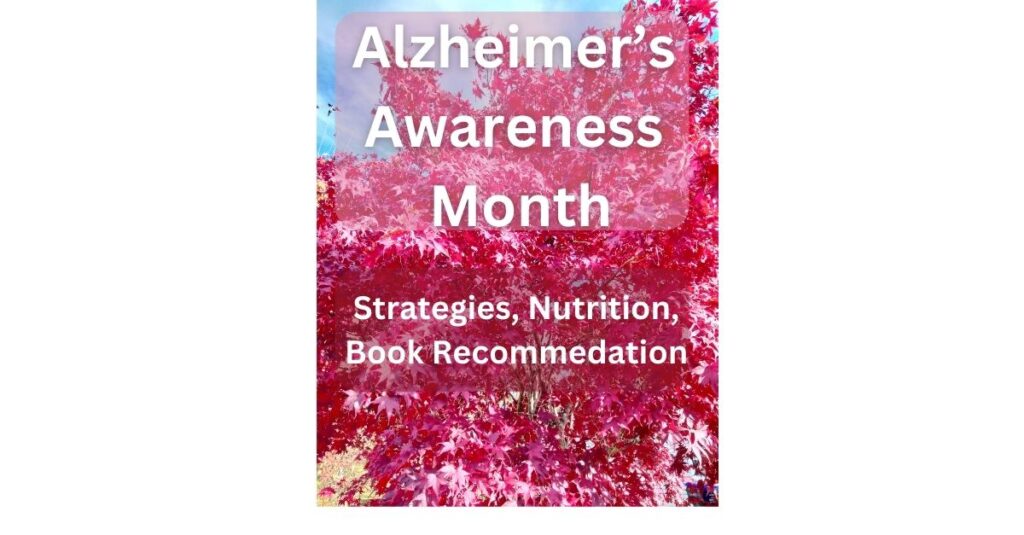
Caring for someone with Alzheimer’s disease can be challenging, both emotionally and physically. However, with the right approach and support, you can provide comfort, understanding, and maintain their dignity. In this part of raising awareness of the disease, I explore strategies and tips to help you navigate the complexities of caregiving for individuals with Alzheimer’s.
Here are some suggestions about how to care for someone.
1. Enhance Communication
Effective communication is crucial when interacting with someone with Alzheimer’s disease. Here are some tips to enhance communication:
– Maintain eye contact and use a calm and reassuring tone.
– Speak slowly and clearly, giving the person time to process your words.
– Use simple and concise sentences, avoiding complex or abstract concepts.
– Pay attention to non-verbal cues and body language, as they may provide important clues about their feelings or needs.
2. Create a Structured Environment
A structured and predictable environment can help reduce anxiety and confusion for someone with Alzheimer’s. Consider the following:
– Establish a daily routine with regular times for meals, grooming, and activities.
– Keep the living space organized and free from clutter.
– Use labels, color-coded cues, or signs to assist with navigation and identifying objects.
3. Practice Patience and Flexibility
Caring for someone with Alzheimer’s requires patience and flexibility. Keep in mind the following:
– Avoid rushing or becoming frustrated when they struggle with tasks.
– Be understanding if they repeat questions or stories. Better yet, have them fill-in details of those stories: when and where did it happen, what was the weather, who else was there, what colors and smells do you remember, etc.
– Adapt to their changing needs and abilities, modifying activities as necessary. Sunsetting is the concept where people slow down later in the afternoon, so plan events earlier in the day. I know I’m more tired at the end of the day than the beginning.
4. Encourage Independence
While it’s important to provide assistance when needed, promoting independence can help maintain their self-esteem and dignity. Consider the following.
– Allow them to complete tasks they are capable of doing safely, such as dressing or personal hygiene.
– Break down tasks into simple steps and provide prompts or cues as necessary.
– Provide a list of steps or suggestions for them to follow, work on these together.
5. Seek Support
Caring for someone with Alzheimer’s is a tremendous responsibility, and it’s essential to seek support for yourself. Here are ways to do so:
– Connect with local Alzheimer’s support groups or join online communities.
– Reach out to family and friends for assistance and respite care. This is key to help others see the situation themselves, not just give suggestions or tell you that you’re doing it wrong.
– Consider professional counseling or therapy to help cope with the emotional challenges.
Recommended Book
In her book, “When Waves Rise,” Sara Viola writes about how to modify our thinking and actions to enable the best possible outcomes. Simply taking a minute to assess a situation beforehand can help make the time spent with someone better. She suggests we evaluate the person in context of their surroundings and not bring our world into theirs. I’ve used this with my Mom while she was still alive, and it works. Her book focuses on dementia with Alzheimer’s being a subset. I highly recommend reading and putting into actions she outlines in this book.
Nutrition
Nutrition plays a pivotal role in supporting individuals with Alzheimer’s disease, and strategic dietary choices can contribute to enhanced cognitive function and overall well-being. Research suggests that a diet rich in antioxidants and anti-inflammatory properties may offer benefits. For instance, incorporating blueberries, known for their high antioxidant content, into the daily diet can potentially help combat oxidative stress associated with Alzheimer’s (Shukitt-Hale et al., 2015). Additionally, a study in the “Journal of Neurochemistry” highlights the neuroprotective effects of curcumin, found in turmeric, which may aid in reducing inflammation and beta-amyloid plaques, common markers in Alzheimer’s progression (Lim et al., 2001).
Furthermore, focusing on omega-3 fatty acids is crucial. Cold-water fish such as salmon and mackerel, as well as walnuts and flaxseeds, are excellent sources. Research in the “Journal of Clinical Lipidology” indicates that these fatty acids can support brain health and potentially slow cognitive decline in individuals with Alzheimer’s disease (Yassine et al., 2017). While nutrition alone cannot cure Alzheimer’s, these dietary choices may contribute to a holistic approach in managing the symptoms and improving the overall quality of life for individuals living with the disease.
In addition to antioxidant-rich foods and omega-3 fatty acids, adopting a diet known for its positive impact on cardiovascular health may have benefits for those with Alzheimer’s disease. The Dietary Approaches to Stop Hypertension (DASH) diet, recognized for its ability to lower blood pressure, emphasizes fruits, vegetables, whole grains, lean proteins, and low-fat dairy. A study published in the “American Journal of Clinical Nutrition” indicates that adherence to the DASH diet is associated with a reduced risk of Alzheimer’s disease, possibly due to its vascular protective effects (Morris et al., 2015).
Vitamin E, found in nuts, seeds, and leafy greens, has been studied for its potential to slow cognitive decline in individuals with Alzheimer’s as well (Petersen et al., 2019). Vitamin D, obtained through sunlight exposure and dietary sources like fatty fish and fortified dairy products, is also essential. Research in the “Journal of Alzheimer’s Disease” suggests that maintaining optimal vitamin D levels may play a role in preventing cognitive decline in older adults (Littlejohns et al., 2014). While nutritional strategies are not a cure, they offer a promising avenue for individuals with Alzheimer’s and their caregivers to explore as part of a comprehensive care plan.
I understand that following these recommendations are next to impossible if your loved one is in a facility or memory care ward. Most facilities are focused on getting calories into their patients but many also have alternatives for those that require them. Work with your facility to see how far they are willing to go and you might be surprised.
Conclusion
Alzheimer’s disease not only affects individuals diagnosed with it but also has a profound impact on their families and caregivers. It’s crucial to acknowledge the emotional toll this disease can have on everyone involved. Take care of your own well-being and remember that you are not alone. Support and resources are available to help you navigate this journey.
By arming ourselves with knowledge, compassion, and support, we can make a meaningful difference in the lives of those affected by this devastating disease. Let us use National Alzheimer’s Disease Month as a catalyst for continued awareness, understanding, and progress towards finding a cure.
In my last part of this series, I will list places to go for additional support, there are several. I will also provide an overview of some of the research taking place to moderate and hopefully cure this disease.


Leave a Reply